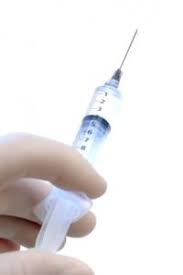In his groundbreaking book called "the China Study," Dr. T. Colin Campbell says, "If you do not eat any animal products for three years or more, or are pregnant or breastfeeding, you should consider taking a small B12 supplement on occasion, or going to the doctor annually to check your blood levels of B vitamins" (p. 232
the China Study).
Vitamin B12 plays a pivotal role in a person's nervous system and energy level. "B12 protects the nervous system. Without it, permanent damage can result (e.g., blindness, deafness, dementia). Fatigue, and tingling in the hands or feet, can be early signs of deficiency" (
Link).
Cyanocobalamin vs. Methylcobalamin?
B12 supplements are available in either cyanocobalamin or methylcobalamin form. Methylcobalamin is proven to be more natural and better absorbed by the body (
Link). "In Japan and Great Britain, cyanocobalamin has been removed from the market while methylcobalamin is available" (
Link).
"The B12 Patch"
The B12 patch is effective because it completely bypasses the digestion tract and adds B12 directly into a person's bloodstream. I've noticed a significant increase in energy when using a B-12 patch, and I think the patch is the most reliable method of taking B-12. There are many different brands available on Amazon, and the average patch is applied once or twice a week (
Link).
David Rainoshek of "Juice Feasting" has talked about how the B12 Patch has proven effective for increasing B12 levels (Link). Kevin Gianni from Renegade Health also promotes this patch:
Sublingual Tablets
Sublingual tablets dissolve under the tongue, which can increase absorption. "When a chemical comes in contact with the mucous membrane beneath the tongue, it diffuses through it. Because the connective tissue beneath the epithelium contains a profusion of capillaries, the substance then diffuses into them and enters the venous circulation" (
Link).
"A study published in the Feb. 21, 2005 BioMed Central Family Practice, concluded that sublingual B12 was as effective as B12 injections and was more convenient to administer" (
Link). Popular raw vegan author Paul Nison promotes the sublingual form of B12 (
Link). Another author noted many health issues "which resolved immediately or shortly after taking B-12 shots or sublingual tablets" (
Link). Many different brands are available on Amazon or even at your local health food store (
Link).
Sublingual Spray
"Dr. Mercola's B12 Energy Booster" is a spray that uses "nano droplets", which are absorbed under the tongue. Dr. Mercola sells this product on his website (
Link).
On her website, popular raw food author and speaker "Shazzie" says, "I think I've finally got on top of the panic attacks I used to have. That was probably due to being vegan long-term, a B12 deficiency, cured with sublingual spray.
I'd always taken B12 but not sublingually, as I didn't realise the importance. I know better now" (
Link).
Nutritional Yeast
"Juice Daddy" Jay Kordich has promoted Nutritional Yeast as a way to get vitamin B12. Nutritional Yeast is fortified with vitamin B12, yet it is also naturally rich in other B vitamins.
"Injections"
For those who have extreme deficiencies, monthly or weekly B12 injections may be needed. Injections are affordable and can be approved by a physician.

Most multivitamins include B-12. This is sufficient for many vegans. However, some people find that traditional pills are not absorbed as well when compared to sublingual B12 or B12 patches. (
Link)
"Diet"
Many vegans say that a vegan diet naturally contains all essential vitamins, including B12, and therefore supplementation is not essential on a vegan diet. This is partially true, simply because B12 is usually added to popular vegan foods such as soy milk and cereal. Therefore, vegans who do not take supplements can still attain enough B12 from these enriched foods.
Other vegans choose to switch to a vegetarian diet (or a
raw vegetarian diet), adding organic free range eggs and/or organic dairy into their diet (
including raw eggs, raw milk and raw milk cheese).
For most adults, the recommended daily intake of Vitamin B12 is
2.4 micrograms per day (
Link). For vitamin B12 rich foods, check out my other post
Here!
In the below video, Natasha St. Michael details how a vegan diet left her B12 deficient. She said she was not properly absorbing B12 from the traditional supplement she was taking. So she is now eating animal products such as fish and eggs on a daily basis.
People who have trouble absorbing B12 from a typical pill might want to consider a sublingual pill or a B12 patch.

























